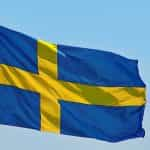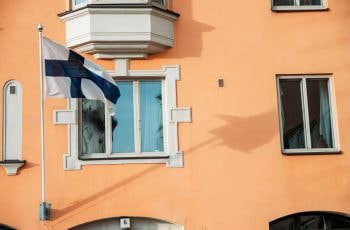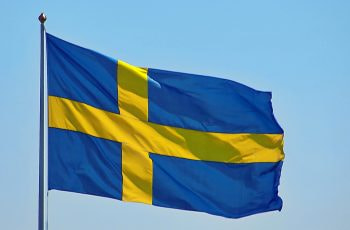Gaming Corps Gains a Supplier License in Sweden Amidst a Host of Regulator-Related Activity
Months after the Swedish Gambling Authority Spelinspektionen commenced the process of issuing B2B licenses to developers and solution providers in the gambling segment, Gaming Corps has become the latest entity to gain the supplier permit. The decision to introduce the new supplier license was proposed more than a year ago by the supreme decision-making body of Sweden, Riksdag. The proposal was welcomed as it was another positive step to keep illegal gambling at bay. Gaming Corps’ supplier license and other B2B developers and service providers will go live from July 1 this year.

Gaming Corps has become the latest entity to gain the supplier permit in Sweden.
©Ana Borquez/Unsplash
The gambling market activity has been relatively high in Sweden lately. This not only includes the increase in players and legal operators in the country but also includes the activities taking place within the regulator’s office. The incumbency of the Director General of the Swedish Gambling Authority, Camilla Rosenberg, was extended by three years till 2026. Rosenberg has held the title since 2017, and Spelinspektionen has evolved during her tenure as the Director General. Another change comes with respect to the gambling regulator’s control over the gambling market. Several new regulatory powers were approved for the Swedish Gambling Authority a few weeks ago, enabling the regulator to step up its fight against illegal gambling in its jurisdiction. The bill that granted Spelinspektionen these new regulatory powers was introduced at the end of last year and received approval a few weeks ago. The new regulations have authorized the Swedish Gambling Authority to request the desired transaction details between players and gambling operators.
In case the transactions of Swedish players are with gambling operators that do not hold the nation’s gambling permit, Spelinspektionen has the authority to sanction payment blocks on the payment service provider via which these transactions were initiated and completed. The Government of Sweden showed its support against illegal gambling activities by increasing the regulator’s funding. After asking the Swedish Gambling Authority to team up with the Financial Supervisory Authority of Sweden in the fight against unlicensed operators, the Government handed the regulator another boost, this time in the finance department, by announcing an additional SEK 2.4 million to its funding earlier this year. The decision was finalized as part of the Spring 2023 Amendment Budget, and Spelinspektionen is expected to receive these funds this month. The Government expects the regulator to improve its existing measures that are in place to combat not just illegal gambling but also other illicit activities that are threatening the integrity of the nation’s gambling market, like match-fixing and money laundering.
Amidst all these events, the regular responsibilities of the regulator are active. The licensing responsibility has increased because of the introduction of the B2B supplier license. Earlier, the Swedish Gambling Authority issued only B2C gambling permits to operators who applied with proper paperwork and committed no errors. Now the regulator also has to check applications for B2B licenses, and the workload is relatively high in that segment. Over 60 applications came in for the supplier permit when the process started. However, in the initial issuance phase, the regulator only granted these permits to 15 companies. A few more B2B licenses have been issued in the past couple of months. Recently, Gaming Corps saw its application get green-stamped and became the latest gaming and iGaming development company to gain a Swedish supplier license. The operator has established its headquarters in Sweden and has development studios in Malta and Ukraine. Gaming Corps is already licensed by the Malta Gaming Authority (MGA) and has distributed its iGaming solutions in Malta since 2020.
After entering the Swedish gambling market, Gaming Corps CEO, Juga Kauppinen, conveyed his satisfaction with the operator’s progress.
“It is gratifying that more and more markets are going against clearer regulation with a focus on healthy gambling has been going on for some time, which is important. Here, Sweden follows the development in the right direction and makes demands on us as developers of games and not only on the operators. It is very gratifying that we at Gaming Corps received our Swedish license and that we are approved 5 years from now. In addition to Sweden, the Company today also has approvals from Greece and Malta.”
Revenue of SEK 6.56 billion collected by licensed operators
Quarterly revenue in the gambling segment dipped in Sweden for the first time after three successful quarters. After licensed operators generated SEK 7.25 billion in the final quarter of last year, the Q1 revenue this year amounted to SEK 6.56 billion, which marked a 9.4 percent quarter-on-quarter (QoQ) decrease. However, the performance of this year’s first
quarter was marginally better than Q1 of 2022. During that period, the revenue was 0.1 percent lower. The online gambling segment was responsible for generating more than half of the quarterly revenue. The vertical reeled in SEK 4.2 billion, which marked a 4.6 percent QoQ decrease and a 0.9 percent year-on-year (YoY) decrease.
The state lottery and slot game segment was the second-best performing vertical in the Swedish gambling market, recording a 5.2 percent YoY increase with a 19.7 percent QoQ decrease. Games for public purposes and national lotteries also failed to enjoy a high-performing quarter after reeling SEK 812 million, marking a 6 percent YoY and a 12.4 percent QoQ decrease. The State Casino game was up 22.3 percent YoY but could not match the performance of Q4 2022, as it marked a QoQ decrease of 9.3 percent after generating SEK 126 million. Land-based casinos contributed SEK 47 million, while community games and hall bingo collected SEK 38 million.
License application fee revised under new regulations
Spelinspektionen has amended a few sections under the Swedish Gambling Act and the Gambling Ordinance. These changes have been ushered in to strengthen the measures that have been deployed against illegal gambling and other illicit activities. Amendments have been made to the Gambling Act (2018:1138) in various parts, including sections 17, 18, 26, 27, and more. Almost all these amendments revolve around the factor of player safety and responsible gambling.
The amendments in the Gambling Ordinance include an increased license application fee for all gambling segments. The application fee will be charged according to Chapter 11 Section 2, while charges to change the license will be conducted according to Chapter 11 Section 3. The process of deregistration from the Swedish gambling market will occur according to Chapter 11 Section 4 of the Gaming Act. The amendments have been confirmed and will come into play from July 1 this year.



